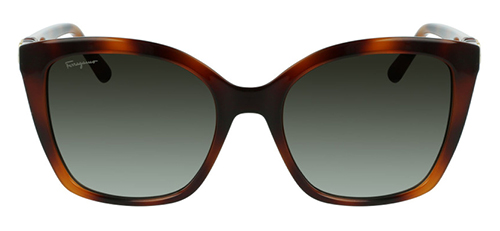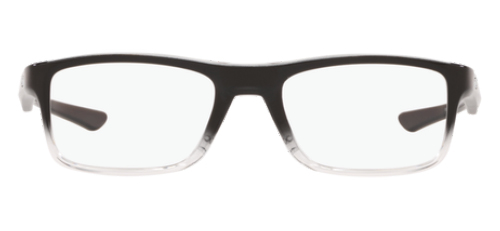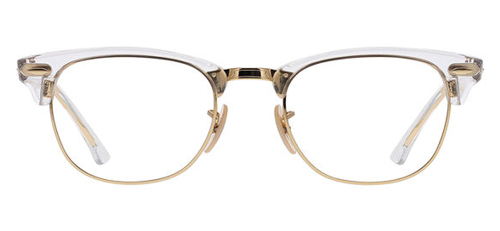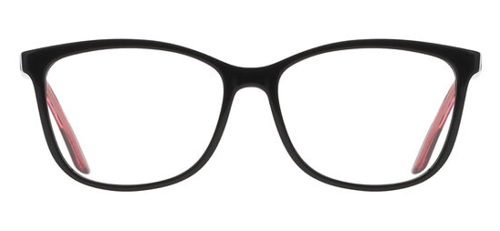5 Signs You Need New Glasses
Posted Dec 9, 2022 | Eye Health
Why New Glasses Are So Important
Many of us find the perfect pair of eyeglasses and stick with them until.... well, forever, if we can still see with them. But just because you can see out of your glasses doesn’t mean they’re still doing their job, especially if it’s been over two years.Unlike a pair of pants that don't fit a growing child after a summer, knowing when it's time to update your glasses prescription isn’t always obvious. Vision changes may happen slowly, so if you delay your annual trip to the optometrist, you may not notice how bad your vision has gotten.
How often should you get new glasses? Optometrists recommend seeing your eye doctor every two years to ensure your prescription is up to date. But how do you know if you need an updated prescription before your yearly visit? An obvious sign is blurry vision. However, not all signs are obvious, so keep an eye out — pun intended — for these hints that you need new glasses:
You squint.
You partly close your eyes and – voilà! – you can see. When you squint, a small, concentrated amount of light is let into your eyes, resulting in better vision. While that gets the job done temporarily, it shouldn't be happening while you're wearing your glasses.You get headaches.
The extra work your eyes and brain are performing to make up for your old prescription puts tension on your eye muscles. This can cause headaches and eye strain. If you notice more headaches than usual, it may be time for a visit to your eye doctor.
You haven't had new glasses in years.
The American Optometric Association (AOA) recommends scheduling a comprehensive eye exam every two years since eye health is related to age and overall health. Your eye doctor can even detect early signs of heart disease and diabetes.You see double.
Usually, this occurs when you see two images of one object, which is an indication that your eyes are not working together to see clearly.Your glasses are scratched or damaged.
Scratched lenses can make your vision appear blurry, while bent frames can make your glasses sit incorrectly on your face. Both cause issues with the quality of your vision.Other Reasons to Change Glasses
Sometimes it makes sense to get new glasses even if your current pair are in good shape and you can see well. You may want to switch out frames when:Your glasses are out of style.
Fashion-forward people might retire last year’s eyeglasses in favor of what’s hot now. There’s nothing wrong with staying on-trend!You want lenses with different features.
Blue light lenses can help prevent digital eye strain, while photochromic lenses grow dark when exposed to UV light. These are just two types of lens technologies you may want to take advantage of with new glasses.Think it might be time to update your prescription? Use our Find a Doctor tool to find an eye doctor near you. Or browse glasses on Eyeconic.
Why shop on Eyeconic? It’s easy, with free shipping and returns. Plus, if you're a VSP member, you save 20%. Find a Doctor Connect your benefits
Best Selling Glasses
Salvatore Ferragamo SF1026S Sunglasses
Bold and elegant, these fashionable frames also offer excellent coverage against glare.
 Shop Salvatore Ferragamo SF1026S
Shop Salvatore Ferragamo SF1026S
Oakley OX8081 Glasses
These slim, rectangular frames make excellent use of Oakley’s famous Three-Point fit to maximize comfort.
 Shop Oakley OX8081
Shop Oakley OX8081
Ray-Ban RX5154 Glasses
Looking for a classic design that has stood the test of time? Look no further than Ray-ban’s rockabilly-inspired RX5154 frames. Shop Ray-Ban RX5154
Shop Ray-Ban RX5154
Smart Staples WP 8106 Glasses
Finding an affordable pair of frames doesn’t have to mean sacrificing style. With a trendy shape that fits a variety of face shapes, these frames offer eye-catching sophistication at an affordable price.
 Shop Smart Staples WP 8106
Shop Smart Staples WP 8106
Information received through VSP Vision Care's social media channels is for informational purposes only and does not constitute medical advice, medical recommendations, diagnosis or treatment. Always seek the advice of your physician or other qualified health provider with any questions you may have regarding a medical condition.